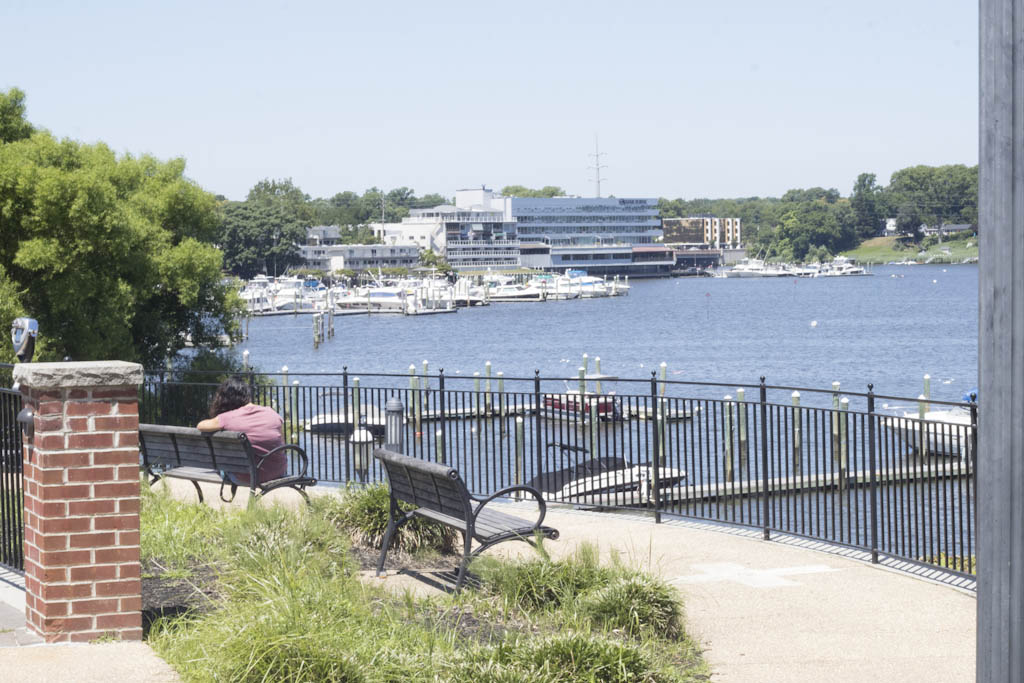The future of academies and specialized programs at Red Bank Regional High School could be at risk if a $22.2 million referendum is defeated by voters on Dec. 11.
That was the assessment offered by Red Bank Regional High School District Board of Education member Frank A. Neary Jr. during a special meeting of the board on Oct. 3. Neary chairs the board’s finance committee.
Neary said with help from state aid, the cost of the referendum to taxpayers could come down to $18 million. Neary said the board anticipates receiving $4.2 million from the state.
Neary, who asserted that the high school is “so desirable people would commit fraud” to attend it, said the school can no longer accommodate its growing enrollment. He said a referendum is needed to make renovations to and expand the building, which is located in Little Silver.
According to the school district’s website, current enrollment already exceeds the building’s capacity and a recent demographic study predicts further significant increases.
Neary said the work is necessary so the board can continue to accommodate students from Red Bank, Little Silver and Shrewsbury Borough who are districted to attend the high school, and so the board can continue to accept out-of-district students who pay tuition to attend Red Bank Regional and enroll in special programs.
Students who pay tuition, Neary said, collectively contribute to the substantial revenue stream the school takes in annually. Revenue generated in previous years, he said, has funded the school’s five academies, athletics and extracurricular activities.
“Space limitations have caused the school to turn back many qualified tuition students. The recent loss of revenue has already been significant. (Red Bank Regional) took in $4 million in tuition four years ago. Last year, that amount dropped to $2.8 million …. Our taxpayers (in Red Bank, Little Silver and Shrewsbury Borough) are now paying over $1.2 million more per year than they were just four years ago to lost tuition revenue,” according to a memorandum outlining the matter.
The academies offered at the high school are the Visual and Performing Arts Academy, the Academy of Information Technology, the Academy of Engineering, the Academy of Finance and the Early Childhood Education Academy.
Red Bank Regional also offers advanced placement courses, dual credit courses, honors programs and the International Baccalaureate (IB) Diploma Programme. The IB program is described by the district as a “rigorous and comprehensive pre-university course of studies.”
If the referendum is defeated, the high school’s specialized programs could be affected, according to Neary.
Eligible voters who live in the regional school district’s three sending municipalities – Red Bank, Little Silver and Shrewsbury Borough – may participate in the special election. A collective majority on the referendum vote – not the results in an individual town – will pass or defeat the proposed spending package.
Neary said the referendum would pay for the addition of 10 classrooms, the renovation of classrooms, additional hallways, the replacement of the roof and upgrades to the school’s outdoor facilities.
He said the roof that needs to be replaced will account for $6 million of the projected $17.9 million expenditure.
Neary said some existing classrooms and work spaces are not ideal learning environments for students. These spaces need to be improved in order to accommodate students and programs appropriately, he said.
Superintendent of Schools Louis Moore said that ideally, the school board would like to accept 200 tuition students each year. Moore said admitting 200 out-of-district students would “stabilize” the stream of revenue the high school takes in each year.
“The effort to put together this proposal has been a multi-year effort,” Moore said. “This is a responsible proposal … (The referendum) is going to address some longstanding needs to support our program requirements.”
Moore said the enhancements to the school will make it “future ready.”
The referendum will be separated into two questions.
The first question will ask voters to approve the expenditure of $15.7 million. State aid is anticipated to cover $4.2 million of the first question. The first question will propose the replacement of the roof, the renovation of existing areas and the addition of 10 classrooms.
The second question will ask voters to approve the expenditure of $2.3 million that would pay for the construction of a synthetic turf field and the construction of a new concession stand with restrooms. The state aid will not contribute any money toward this portion of the referendum.
The first question can be passed regardless of the outcome of the second question, however, the second question can only pass if it passes and the first question passes.
Neary outlined the tax impact of the referendum on property owners. In Little Silver, the owner of a home assessed at $600,000 would pay about $138 more annually through 2023 if both questions pass; in Red Bank, the owner of a home assessed at $300,000 would pay about $70 more annually through 2023 if both questions pass; and in Shrewsbury Borough, the owner of a home assessed at $500,000 would pay $130 more annually through 2023 if both questions pass.
Neary said that after 2023, the extra amount in Little Silver would decrease to about $90; the extra amount in Red Bank would decrease to about $45; and the extra amount in Shrewsbury Borough would decrease to $80. The exact amount of additional taxes to be paid will be determined by the assessed value of an individual’s home and/or property.

